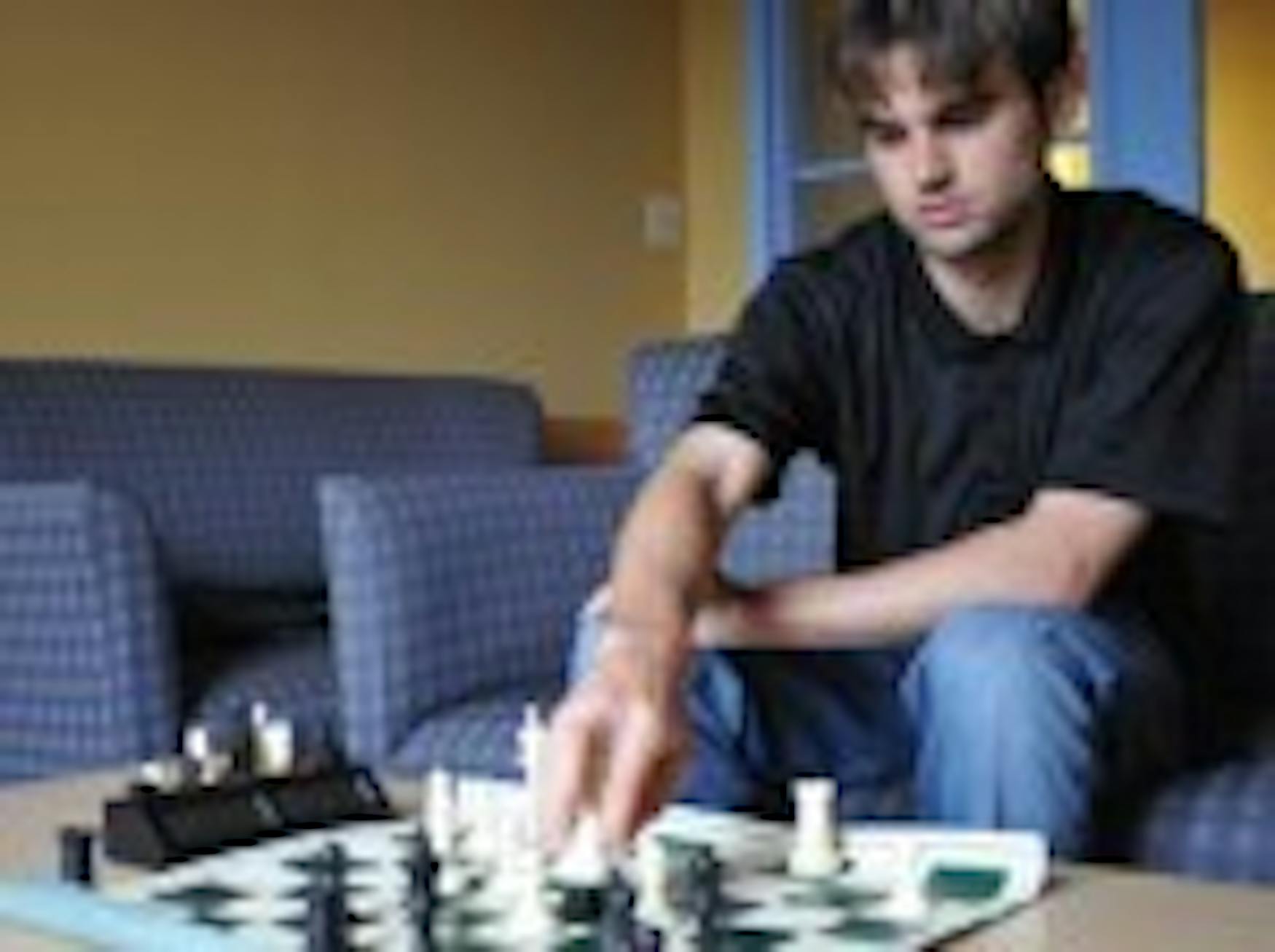Trading bishops for books
Samuel Shankland '14 discusses his former chess career
During the months before he started at Brandeis, Samuel Shankland '14 did not fill his summer with a mindless job, lazy days at the beach or soaking up the fleeting luxuries of living at home with parents. Shankland, a California native who took a gap year before entering college, spent his time preparing for the United States junior chess championship in July, at which he became the newly crowned U.S. junior chess champion. Shankland has been playing chess since he was seven years old, a hobby that colored much of his young life with accomplishments and sacrifices. He entered his first chess tournament when he was 10, and only six years later had became the youngest adult state champion in California, according to his personal website. Now, after 11 years of playing and a United States championship title later, he says he plans on quitting the game upon entering college.
When asked what motivated Shankland to become so involved with chess, he casually said, "I like to win. I was always a decent athlete but never amazing. But then I found this game and started killing everyone instantly and moving up the ranks."
According to his personal website, Shankland came in fourth place at the kindergarten-sixth grade California state championship soon after he began playing in tournaments. Three years later, he became a national master, a title created by the United States Chess Federation, which means that on a scale of 0-3000, he had a rating of at least 2,200. In 2008, at the age of 17, he tied for first place to become the 2008 world under-18 co-champion in Vietnam.
For the past year, Shankland has been living in an apartment with three friends, working as a "full time chess professional" with two of his roommates. According to his website, he spent his days playing, teaching, giving lectures, and writing articles about chess. In July, he traveled to St. Louis to participate in his latest and final tournament, the U.S. Junior Chess Championship.
While Shankland was victorious at the championship and subsequently qualified for the World Junior Championship in Poland, he decided not to go, telling The New York Times, "I'm not turning my life upside down on such short notice." Further, upon his successes in St. Louis, he has decided to quit his life in professional chess altogether. The 18-year-old whose website boasts that he has one of the "steepest learning curves in American chess history," says he is quitting because of "a lot of political problems, essentially."
Although Shankland is currently an international master, various technicalities, which Shankland describes as "ludicrous," have kept him from becoming a grandmaster, the highest title a chess player can achieve. On failing to become a grandmaster, Shankland told The New York Times, "Everybody says it is not supposed to be easy, which is fine by me. But it is supposed to be fair."
Shankland says that he hopes to have a "typical college experience" at Brandeis, although he does plan on playing for the New England chess league. When he was playing professionaly, he says he "only met older people [and] didn't get a sense of what it was like to be a teen."
"I want to have a good time, meet a lot of interesting people [and] take a lot of classes," Shankland says.
Shankland says that he has had to make sacrifices in order to succeed as a chess professional. In high school, Shankland says teachers were often unsympathetic to the time and dedication required to perform in chess tournaments.
"It was tough," says Shankland. "I missed two weeks of school in 2007, and teachers [were] not very understanding." He adds jokingly, "Next year in 2008 [for the World] under 18 [championship] I took first...so they were a little bit more appreciative then."
Like any athletic sport, chess tournaments are physically strenuous and require much preparation. Shankland says that in order to prepare for a tournament he must "exercise and keep in shape," and says it's important to "be in form." He describes a tournament in 2008 in which he lost 8 pounds over the course of a week.
Max Enkin '11, a chemistry major who also dedicated much of his young life to chess, says that he also made sacrifices in order to participate in chess tournaments.
"When I was younger,... I spent a large period of my time playing chess. I really didn't do anything else; I went to tournaments every weekend, and had multiple chess coaches," says Enkin.
Enkin says he had to study a lot of chess moves before going to tournaments. Such studying, he says, helped him to prepare for life as a college student.
"It really shaped the way I study in school,"says Enkin. "It's a very logical and mechanical game and sparked my interest in math and sciences. It has a lot of memorization with learning new openings and right moves in certain positions. ... If I didn't have chess in my life, I would probably have different interests."
Shankland is unsure about how his interest in chess will affect his college academic experience. For now, Shankland says he "[hopes] to take a whole wide range of classes and hopefully find something that inspires me.



Please note All comments are eligible for publication in The Justice.